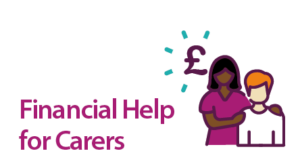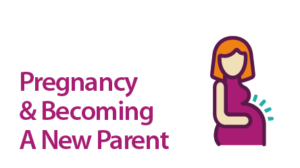Extra support for tenants
4 min read
If you’re worried about your tenant’s wellbeing, there is help available. This page covers:
Supporting tenants with dyslexia
Dyslexia affects reading and writing and how people process information. It can also affect memory, organisation, timekeeping, concentration, multi-tasking, and communication. You can support tenants with dyslexia in the following ways:
Managing rent and bills
- Help them set up a standing order for rent
- If they receive Universal Credit, ask for an Alternative Payment Arrangement (APA)
- Ask if they want their Housing Benefit paid directly to you
- Suggest they use direct debit or standing orders for Council Tax and utility bills
Property maintenance
- Set reminders for key dates, such as bin collection day
- Call in advance to remind them about visits or planned maintenance
Making written communication easier
People with dyslexia may find some text hard to read. When writing to your tenant, you can help by:
- Using a coloured background on the screen instead of plain white
- Use a dyslexic-friendly font or a larger text sizing
- Use bullet points or short messages when writing to them
Carers

“My tenant has given up work to care for their child/partner. How are they are going to keep up with their rent?”
If your tenant has left work to become a carer, they should apply for Universal Credit as soon as possible to help cover rent and basic living costs. Depending on the circumstances, they may also be eligible for Carers Allowance. If they are caring for a child with a disability, they should apply for Disability Living Allowance . For anyone in the household over the age of 16 with a long-term health condition or disability, an application for Personal Independent Payment (PIP) should be made.
Pregnant tenants

“My tenant is now pregnant, and a single mother. How is she going to afford the rent?”
Your tenant may be eligible for financial support depending on their work status. If they are employed, they could receive Statutory Maternity Pay or Maternity Allowance. They should also apply for Universal Credit and Council Tax Support to help cover rent and living costs.
If it is their first child, they may qualify for a one-off payment to help with the costs of having a baby with a Sure Start maternity grant. Once the birth is registered, they can claim Child Benefit and, if eligible, the Universal Credit Child Element. If they are not receiving financial support from the child’s father, they can register with the Child Maintenance Service to arrange automatic payments.
Many parents worry about returning to work due to childcare costs. However, if they earn at least £892 per month (single person) or £1,437 (couple) they will not be affected by the Benefit Cap. Through Universal Credit, they may be able to claim back up to 85% of their childcare costs, as long as the childcare provider is a registered nursery or child minder. Depending on their child’s age, they may also qualify for free childcare. Local charities and organisations can provide free food, clothing and baby items to support new parents.
Relationship breakdown

“My tenants have ended their relationship and are separating. I am happy to assist them, but I don’t know what their rights are, and I am concerned the remaining tenant will not be able to afford the rent.”
Your tenants’ rights will depend on their legal relationship and tenancy agreement. They may be married, in a civil partnership, or cohabiting and either both or just one may be named on the tenancy.
If one tenant wishes to stay in the property, their ability to do so will depend on their tenancy agreement, financial situation, and legal rights. It is important to clarify who is responsible for paying the rent and any arrears to prevent future disputes.
For comprehensive guidance, Shelter provides detailed information on tenants’ rights in different situations: